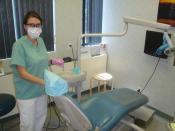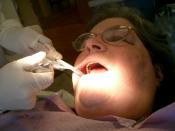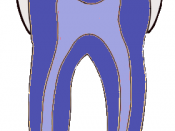Dental hygienists work as a licensed member of the oral health care team to examine patients' teeth and gums to search for and cure any disease or abnormality as well as help patients to develop and maintain good oral health. History of dental hygiene dates back to about 1915, but ancient dentists such as the Shamans of Mayan culture would perform methods of dentistry such as teeth drilling. The Shaman places a thick mixture of powdered quartz and water on the upper incisor; this will serve as an abrasive. He then takes a long, thin tube made of jade or some other hard stone and, twirling it between his palms, begins to excavate a perfectly round hole on the tooth's surface. Developing studies and discoveries have led to the advanced field of dental hygiene that we know today.
To become a dental hygienist, high school students should at the least, follow a college preparatory program.
Other aspiring dental hygienists must complete a two or four-year College program and earn a bachelor's degree, which is preferred by most employers. Most dental hygiene programs grant an associate degree, certificate, bachelor's degree, or master's degree. Future dentists must also pass a written and clinical examination set up by the American Dental Association Joint Commission on National Dental Examinations. In addition, Dental hygienists must be licensed by the State in which they practice. Approximately 210 accredited dental hygiene programs are located in the United States, and several universities and colleges in Colorado offer dental hygiene programs. Current employment of the State include near to 2,710 non-self-employed dental hygienists.
Future dental hygienists have a variety of subjects to study. Coursework for high school students include biology, chemistry, mathematics, and health classes. If planning on entering a specific branch of dentistry, courses should be taken...


